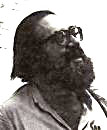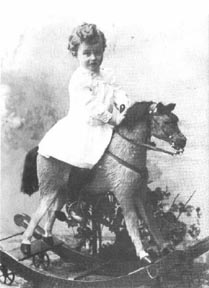JEFFERSON'S ASHES, PASCAL'S BONES &
WITTGENSTEIN'S HOWL
 PRECIS - We have heard rumors of strange alchemical experiments being conducted on the bones of Pascal during the 18th century. We are investigating these allegations and will report back. Jefferson's ashes, however, are a very different matter. No one seems to have cared much lately about the poor savant, who died broke, except (perhaps) Manfredo Tafuri. We'll get to that. We also like the Jefferson Memorial in Washington, DC better than anything else on the tidal basin, especially the botched FDR Memorial. The Jefferson Memorial is a circular neo-classical affair, with cool, crisp, marble 'lineaments'. It is the best place to hang while contemplating the future of the human race.
PRECIS - We have heard rumors of strange alchemical experiments being conducted on the bones of Pascal during the 18th century. We are investigating these allegations and will report back. Jefferson's ashes, however, are a very different matter. No one seems to have cared much lately about the poor savant, who died broke, except (perhaps) Manfredo Tafuri. We'll get to that. We also like the Jefferson Memorial in Washington, DC better than anything else on the tidal basin, especially the botched FDR Memorial. The Jefferson Memorial is a circular neo-classical affair, with cool, crisp, marble 'lineaments'. It is the best place to hang while contemplating the future of the human race.And pick up a copy of le génie français' Pensées in preparation for a voyage into the depths of intrigue ... You may find a copy here (in French) or here (in English). In the latter case there is a search engine. Try the word "bones" in the search engine ... We guarantee results.
Bone appetit!
IN PRAISE OF PASCAL
 We've begun our preliminary research on Pascal and found some very, very interesting stuff regarding 'epideictic rhetoric', which we'll unpack sometime soon for your reading pleasure. Suffice to say, this type of rhetoric is the land of praise, blame and memorialization, something we can truly appreciate. Such seems to be aimed at individuals and their beliefs ... We're on the trail of Louis Marin's interpretive forays into Pascal's written work and have unearthed the concept of discours naturel, a phenomenal find that has us champing at the bit and pawing the ground. This has, apparently, something to do with a "figural and opaque detour" on the road to knowledge of the Real. Pascal, as you all know so well, was a sceptic when it came to actual knowledge of anything concrete. He had this thing about "mots primitifs", which fits beautifully with an excruciatingly complex exegetical outing we are planning on the nature of phonemes and grammatical sub-structures as analogues for landscape. Beware, however, jumping to conclusions. We found that Pascal believed that imagination establishes in man a 'second' nature -- and given his renowned figure of the two infinities (and assuming he is right) -- there is little hope that the human subject can behold anything substantial, whatsoever, and, perhaps, may only know the phantasmatic side of the world. Yet this is the broken game of the Lacanians, wherein every representation is suspect terrain. (04/17/01)
We've begun our preliminary research on Pascal and found some very, very interesting stuff regarding 'epideictic rhetoric', which we'll unpack sometime soon for your reading pleasure. Suffice to say, this type of rhetoric is the land of praise, blame and memorialization, something we can truly appreciate. Such seems to be aimed at individuals and their beliefs ... We're on the trail of Louis Marin's interpretive forays into Pascal's written work and have unearthed the concept of discours naturel, a phenomenal find that has us champing at the bit and pawing the ground. This has, apparently, something to do with a "figural and opaque detour" on the road to knowledge of the Real. Pascal, as you all know so well, was a sceptic when it came to actual knowledge of anything concrete. He had this thing about "mots primitifs", which fits beautifully with an excruciatingly complex exegetical outing we are planning on the nature of phonemes and grammatical sub-structures as analogues for landscape. Beware, however, jumping to conclusions. We found that Pascal believed that imagination establishes in man a 'second' nature -- and given his renowned figure of the two infinities (and assuming he is right) -- there is little hope that the human subject can behold anything substantial, whatsoever, and, perhaps, may only know the phantasmatic side of the world. Yet this is the broken game of the Lacanians, wherein every representation is suspect terrain. (04/17/01)We have found, in our ongoing investigations of Pascal, a thread that runs throughout endless speculations on the Sublime; i.e., a fascination with the infinite nature of the universe that has long undermined theories of language and rhetoric; that is, for at least 2000 years. Longinus' On the Sublime, written in the 3rd century A.D., is the putative first text, in a long line of texts, tackling this formidable subject, albeit in the context of rhetoric.
The following points and insights have been extracted, for your sublime pleasure, from the magisterial essay by Louis Marin, "On the Sublime, Infinity, Je Ne Sais Quoi", in A New History of French Literature, edited by Denis Hollier (Cambridge, MA: Harvard University Press, 1989).
Rhetorical formalities aside, let us proceed ...
 Appropriating Pascal
Appropriating PascalMeanwhile, a parallel investigation is underway, by way of structural linguistics, in the form of the serial essay Sublime Potential ...
LUDWIG WITTGENSTEIN'S HOBBY-HORSE
 Please note: We've picked up Wittgenstein's Tractatus Logico-Philosophicus (1921) and will get back to you presently on our analysis; once we've waded through the Bertrand Russell stuff and entered the charmed circle of LW's argument. We recognize the danger, the intense anti-metaphysical anima, of this famous text and will do our best to present an unbiased report vis-à-vis our investigation of language, landscape and the sublime. (04/28/01)
Please note: We've picked up Wittgenstein's Tractatus Logico-Philosophicus (1921) and will get back to you presently on our analysis; once we've waded through the Bertrand Russell stuff and entered the charmed circle of LW's argument. We recognize the danger, the intense anti-metaphysical anima, of this famous text and will do our best to present an unbiased report vis-à-vis our investigation of language, landscape and the sublime. (04/28/01)PS - Having never gotten around to reporting back on the Tractatus, may we offer you as consolation prize the following, 'definitive' bibliography of LW's major writings and an essay on topological thought (thought itself). For the latter, cliquez ici ...
LANGUAGE GAMES - Ludwig Josef Johann Wittgenstein (1889-1951) - Definitive editions - The Blue and Brown Books [written 1933-35] (Oxford: Basil Blackwell, 1961) - Out of Print / Tractatus logico-philosophicus [written 1922] (London: Routledge & Kegan Paul, 1961) - 2001 edition: Paper, 144 pages, ISBN 0-415-25408-6 / Philosophical Grammar [written 1931-1934], Rush Rhees (ed.), trans. Anthony Kenny (Oxford: Basil Blackwell, 1980) - Paper, ISBN 0-631-11891-8 / Philosophical Investigations [written 1929-1949], G. H. von Wright, R. Rhees, G. E. M. Anscombe (eds.), trans. G. E. M. Anscombe (Oxford: Basil Blackwell, 2001) - Paper, 260 pages, German/English text, ISBN 0-631-23159-5 (Cloth 0-631-23127-7)
APROPOS RIEN - We found this, and include it here without comment: "The score of 'The Rite [of Spring]' survived, but the ballet, after nine performances in 1913, was never given again. People remembered it almost with fear. Jacques Rivière wrote that it analyzed human beings down to 'germ layers, zones, circles, placentas.' (Nijinsky said the same thing: 'It is the life of the stones and the trees. There are no human beings in it.') It was hideous, Rivière said, and stupendous: it 'alters the very source of all our aesthetic judgments.'" --Joan Acocella, The New Yorker (May 7, 2001), pp. 94-97
The Editors

